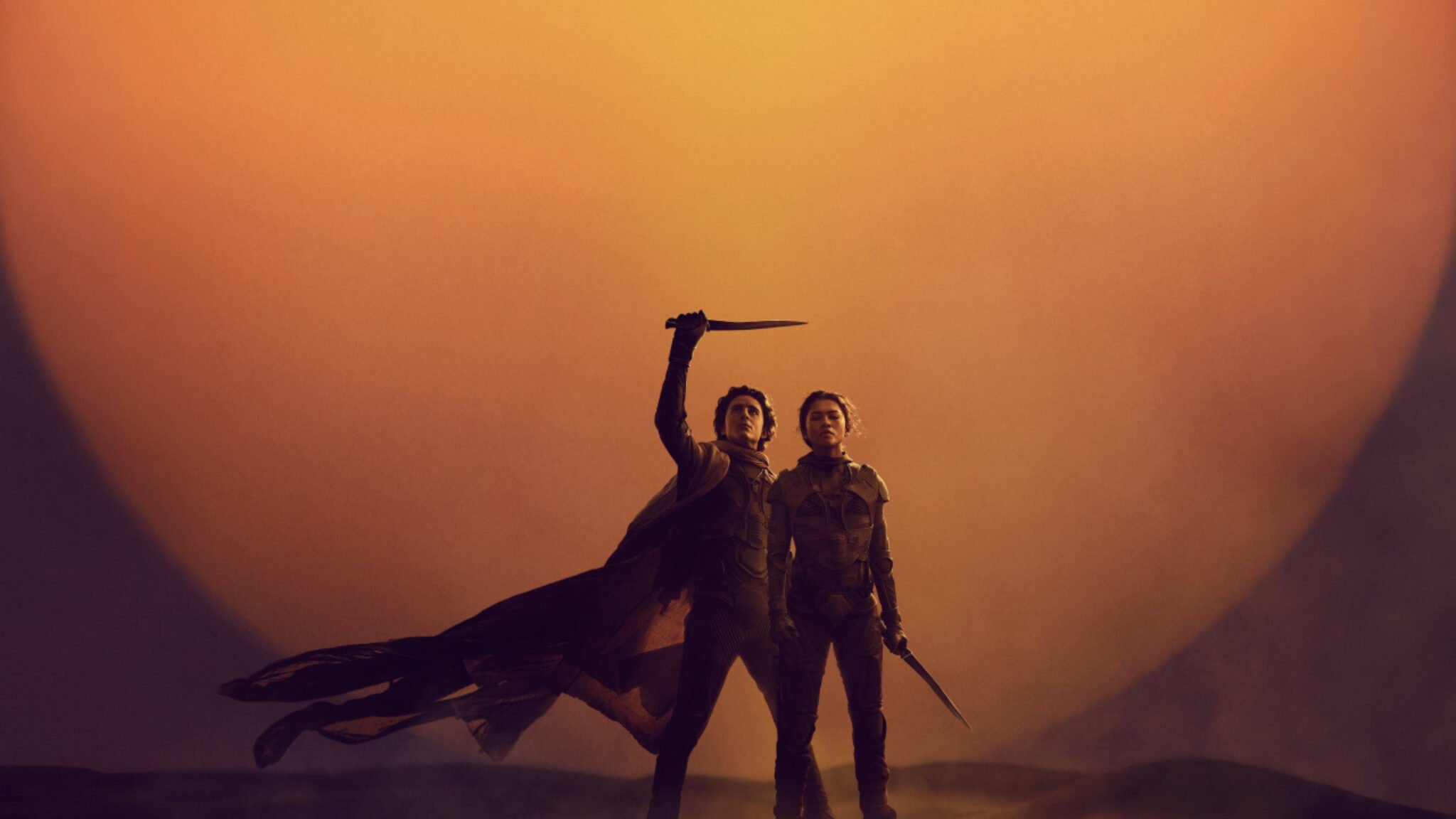Review: reckoning with destiny in a second Dune
More than two years ago, I saw the first movie in Denis Villenueve’s Dune franchise and concluded that, even with a starry cast and technical polish, its maker couldn’t disguise or compensate for the colonialist logic that fueled the Frank Herbert novel upon which it is based. White saviors are losing favor with those of us who prioritize a collectivist, integrated future, so the story of a humble prince (played by Timothée Chalamet) who becomes the messiah for a desert planet populated by vaguely Middle Eastern people doesn’t hold much moral currency.
That being said, I was startled by how much I enjoyed the second installment in the franchise. With reams of exposition out of the way, covered in the two-and-a-half hour first film, Villenueve and his creative team here focus on plot – throwing their audience into a cunning game of thrones, as not only Chalamet’s Paul Atreides, but figures like Florence Pugh’s Princess Irulan, Javier Bardem’s Stilgar, or Austin Butler’s Feyd-Rautha Harkonnen evaluate and tactfully respond to a fraught landscape of political ambitions.
To that end, there are battles galore; scenes of the foreigner, Paul, ingratiating himself with the native Fremen – casting doe eyes at Zendaya’s Chani and riding enormous desert worms like they’re jet skis; and all kinds of scheming that finds Mr. Butler, for instance, slaughtering foes in a gladiatorial arena one moment, and in the next, being seduced by Léa Seydoux while she holds a poison dart to his neck.
In short, this is a movie that is centered on the actions of its characters. It is trusting, and therefore lends real authority to the troupe of actors Mr. Villeneuve has assembled in front of the camera: there is weight to a troubled glance from Ms. Pugh, or to a disturbingly smug smile from Rebecca Ferguson’s Lady Jessica – who steals the movie as a kind of possessed high priestess.
It’s all very thrilling. And yet, or still, all of this movie’s action leads back to the perverse belief that dwells at the heart of its story: no matter how circumspect Paul Atreides may be about being viewed as a messiah, no matter how fervently he tries to resist inflicting the collective pain that he knows will stem from his ascension to power, Dune is, nonetheless, a movie that believes in the necessity of war – not because war is good, nor because it is effective, but because, apparently, it is inevitable.
Destiny rules the day, and it just so happens that destiny requires Paul to dominate while millions of other people suffer. Or, at any rate, this is what comes to him in his visions – and we see his visions echoed, or anticipated by the people around him: religious indoctrination, fueled by Lady Jessica’s missionary work and by Stilgar’s politicking, spurs the “superstitious” masses of Arrakis to receive him as their savior.
It is in this one sense that Dune relates a degree of nuance, because it positions Paul as an unwitting, privileged intuitive who is forced to accept his place in a long line of imperialists. The course of events has less to do with him than it has to do with his manipulative counterparts; he just falls into place as heir, as the “prophesied one,” because his mother and allies scramble to take advantage of a fragile political situation.
But then, of course, such a line of thinking excuses Paul for ultimately acquiescing to his role as ruler. It is only because Paul believes in his visions, and obeys them, that any “prophecy” is fulfilled.
Is it that he is chosen, or is it that he chooses?
Paul is really quite sheepish about being torn between aiding the Fremen and doing what “must” be done. It is easy to level a similar criticism against Mr. Villeneuve – who has, for the last fifteen years, made movies that emphasize the existential burden of enduring violence while simultaneously refusing to turn his camera away from it. There is a strange entitlement, and privilege, to this woeful hand-wringing; no matter how unbearable Villenueve finds others’ suffering, he has certainly made a profitable show of it.
And this particular “show,” indeed the whole Dune franchise, is rendered more starkly exploitative for its concurrence with the Gaza genocide. There were several moments in this latest installment that reminded me of recent real-life images coming out of Rafah: drone weaponry targeting people as they scramble across a desert wasteland; incessant bombing that levels ancient or sacred buildings; and people starving to death, agonizing from a man-made famine.
(At one point, Villeneuve cuts away from a captured Fremen just before Feyd-Rautha burns her alive; is it possible for anyone living today to consider death by fire, in the midst of genocide, and not think of Aaron Bushnell?)
Part of what is so startling about encountering Dune at this moment in time is how evidently its vision of evil mirrors what is happening outside movie theaters’ walls. It is not reasonable to compare its country of origin to that of Paul Atreides, or of the Fremen people – it is the Harkonnen who resemble those who wield militaristic might in the real world, who stand in the way of humanity and liberation.
It’s these revelations that make Paul’s and Villeneuve’s self-pitying visions of inevitable suffering even more unacceptable. Dune: Part Two is a masterpiece of storytelling, yes, but what kind of story is it telling? Ever since Homer wrote about the Trojans, the logic of Western narratives has been the logic of war: instigation, objective, rising action, climax and resolution. And destiny.
There has never been anything holy about war. Now is as good a time as any to disavow ourselves, as an audience, of that insidious, complacent notion.
